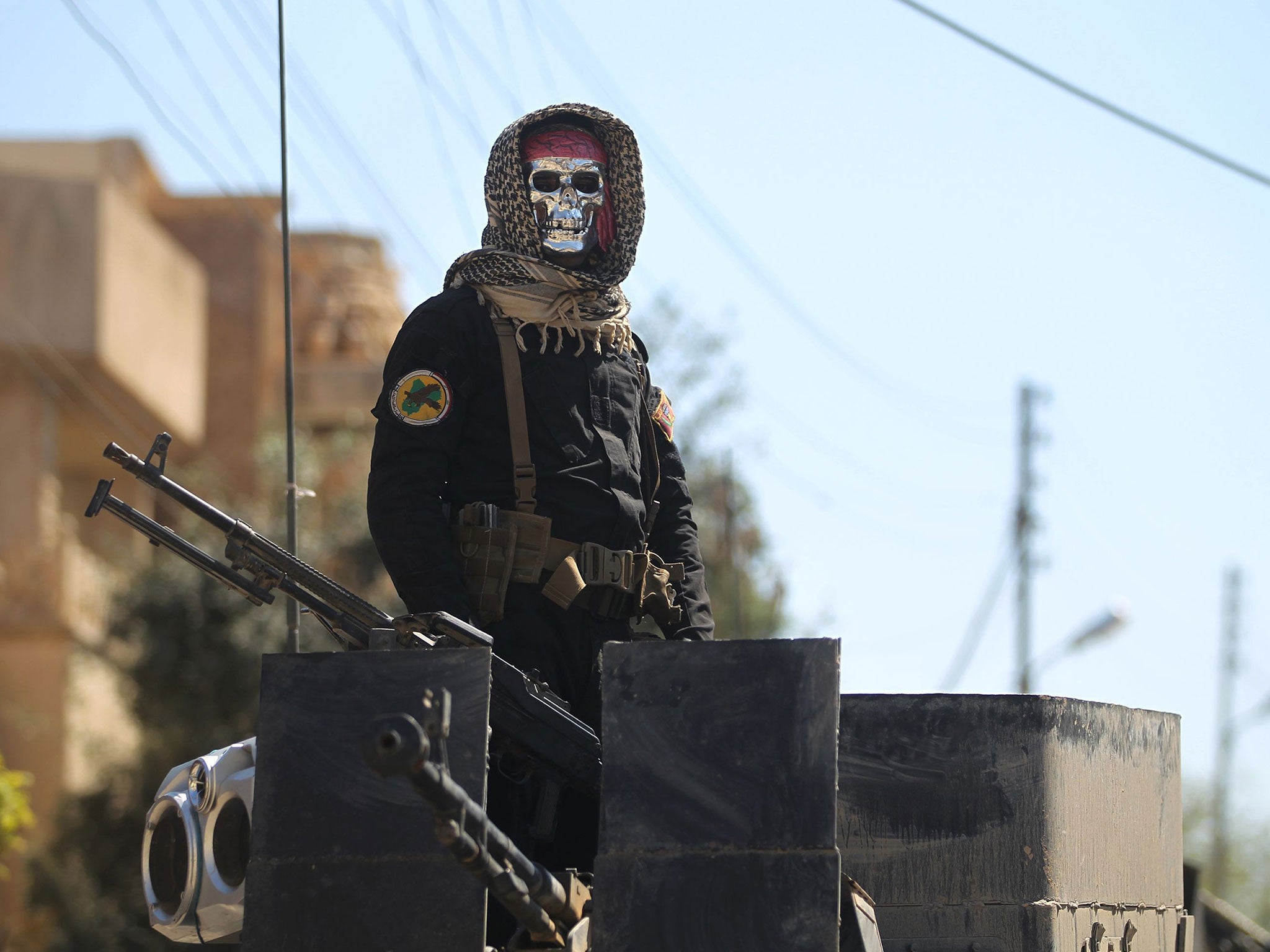Isis ‘seeking alliance with al-Qaeda’, says Iraqi Vice President
Militants reportedly looking for options as Iraqi troops close in on last jihadi strongholds in city of Mosul

Your support helps us to tell the story
From reproductive rights to climate change to Big Tech, The Independent is on the ground when the story is developing. Whether it's investigating the financials of Elon Musk's pro-Trump PAC or producing our latest documentary, 'The A Word', which shines a light on the American women fighting for reproductive rights, we know how important it is to parse out the facts from the messaging.
At such a critical moment in US history, we need reporters on the ground. Your donation allows us to keep sending journalists to speak to both sides of the story.
The Independent is trusted by Americans across the entire political spectrum. And unlike many other quality news outlets, we choose not to lock Americans out of our reporting and analysis with paywalls. We believe quality journalism should be available to everyone, paid for by those who can afford it.
Your support makes all the difference.The leaders of Isis and al-Qaeda are understood to be in talks about a possible alliance between the two groups, the Iraqi vice president has claimed.
“The discussion has started now,” Ayad Allawi said in an interview on Monday, as Isis prepares to lose control of the city of Mosul.
“There are discussions and dialogue between messengers representing [Isis leader Abu Bakr] Baghdadi and representing [al Qaeda-leader Ayman] Zawahiri,” he said, citing what he said were knowledgeable contacts in both Iraq and the wider Middle East. He did not provide further details on how the groups would work together.
Isis was formed after factions fighting in Syria’s civil war split from al-Qaeda in 2014. The two fundamentalist organisations have since fought fiercely over recruits, funding and which group is best placed to inherit the mantle of global jihad.
Many senior leaders and clerics affiliated with al-Qaeda have criticised the brutal way Isis treats civilians, with beheadings, drownings and immolation among their routine execution methods.
Isis swept across the Syrian border and seized almost one third of Iraq in the summer of 2014, including the country’s second-largest city, Mosul.
Baghdadi declared the creation of Isis’s caliphate from the al-Nuri mosque in the city centre shortly afterwards – an act which also became a point of contention with al-Qaeda.
Since October 2016, US-led Iraqi coalition forces, backed by significant air power, have struggled to retake the city and its surroundings from Isis in Operation Inherent Resolve.
The street-by-street battle has killed thousands of civilians and Iraqi troops.
Following a recent spike in civilian deaths, rights groups such as Amnesty International have accused the coalition of not taking enough precautions to protect civilians in the gruelling fight for the last quarter of the city.
Isis has used an extensive network of tunnels, suicide bombers, snipers and boobytrapped roads and bridges to impede Iraqi troops’ progress, often sheltering fighters and weapons in civilian houses, but it is now clinging on to just seven per cent of the city, the Iraqi government has said.
Across the border in Syria, Operation Wrath of Euphrates to retake Isis’ de facto capital of Raqqa is designed to dovetail with the current campaign for Mosul.
In recent weeks Isis fighters have fallen back from both Mosul and Raqqa to the city of Deir ez-Zor in eastern Syria – the group’s last stronghold.
While the militants are steadily losing ground across both Syria and Iraq, Isis – like al-Qaeda – is likely to pose a renewed threat in the form of a global insurgency for many years to come.
“I can't see Isis disappearing into thin air,” Mr Allawi said. “They will remain covertly in sleeper cells, spreading their venom all over the world.”
Reuters contributed to this report
Join our commenting forum
Join thought-provoking conversations, follow other Independent readers and see their replies
Comments